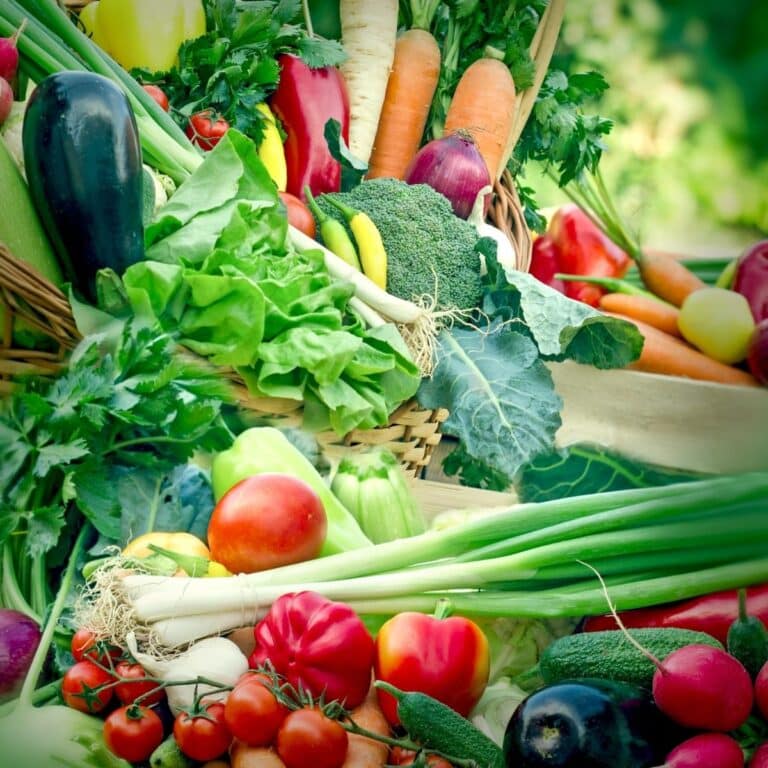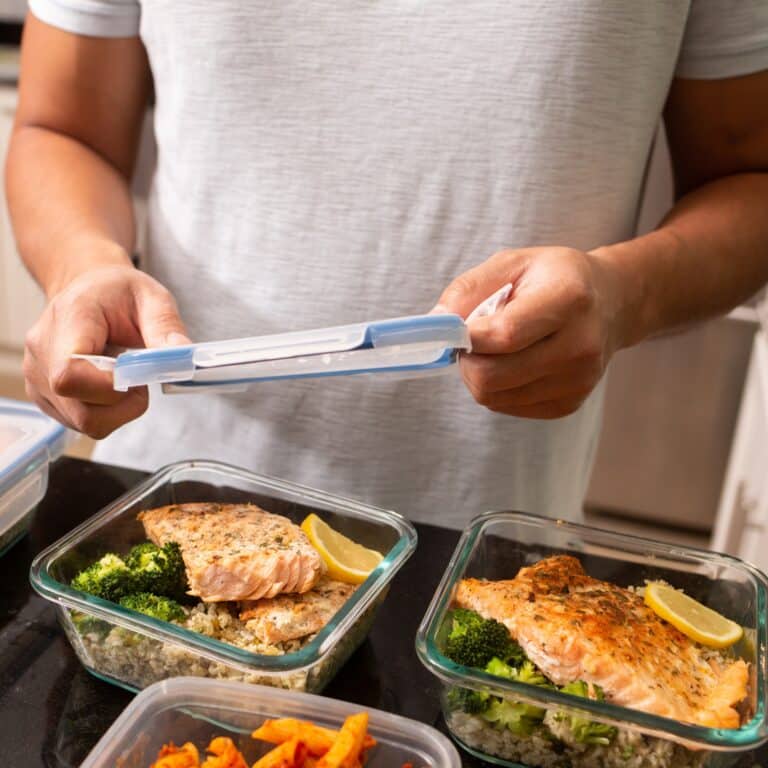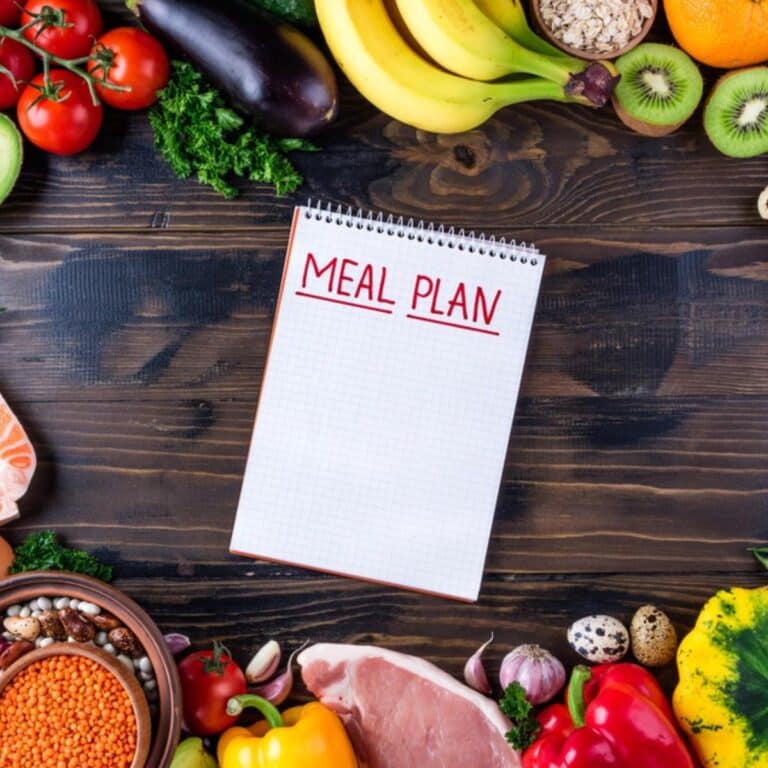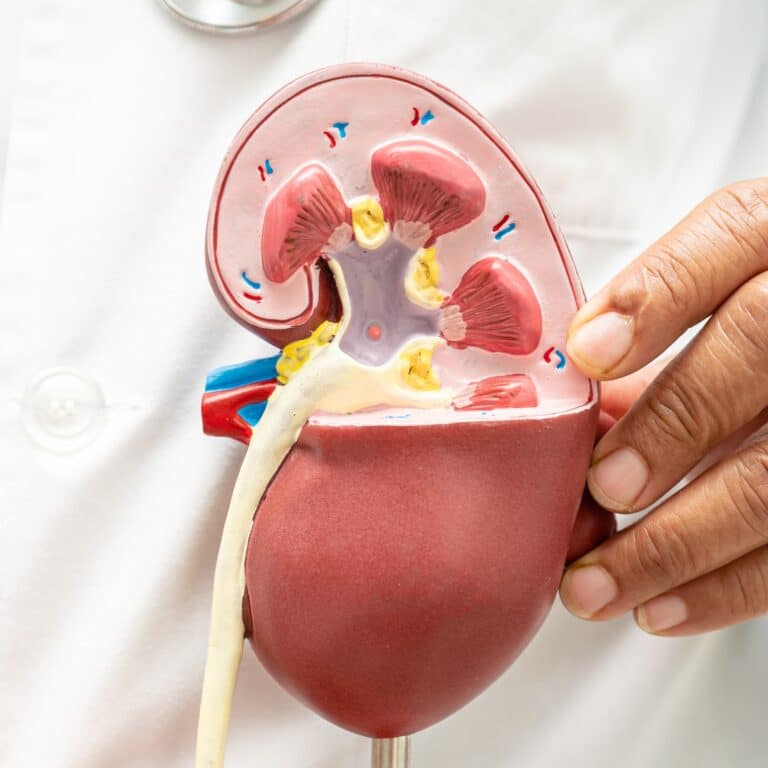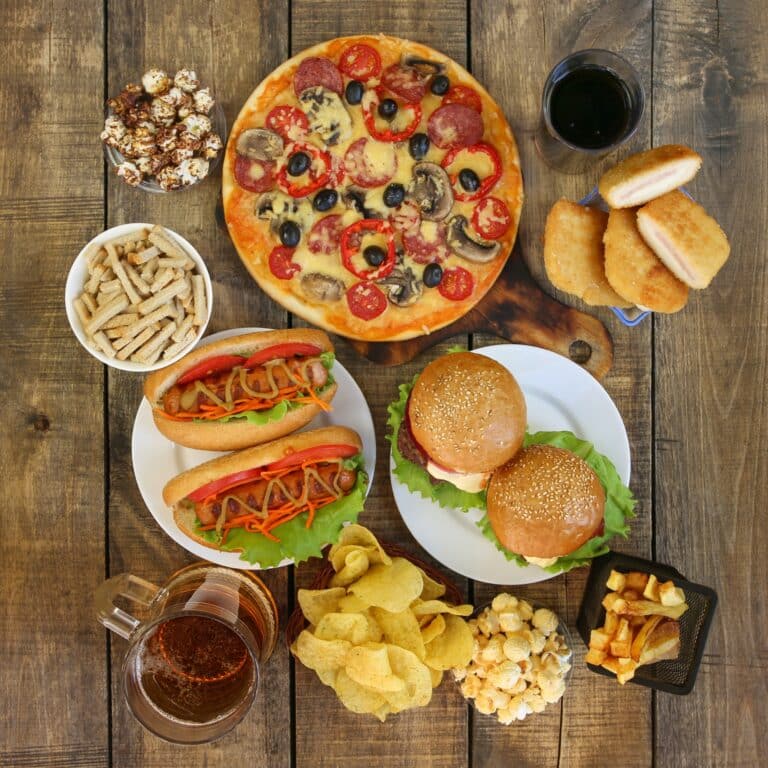My Doctor Prescribed A Renal Diet
So, your doctor has prescribed a renal diet to help manage your chronic kidney disease. You're likely wondering what this means for you and how it will impact your lifestyle.
It's normal to feel overwhelmed, but don't worry! This diet is an essential step in managing your kidney disease and improving overall health. By limiting certain nutrients like protein and phosphorus, controlling fluid and sugar intake, you'll help delay kidney failure.
You won't be alone on this journey - working with medical professionals like your doctor and a renal dietitian is key.
We'll also explore the benefits of kidney-friendly recipes, strategic grocery shopping, fluid intake management, and more in this article.

Jump to:
- Key Takeaways
- Understanding Your Renal Diet Prescription
- The Importance of Following Your Doctor's Orders
- Building a Meal Plan for Your Renal Diet
- The Role of Kidney-Friendly Recipes in Your Diet
- The Benefits of Grocery Shopping and Meal Prep in Advance
- Accounting for Everything You Eat and Drink
- The Impact of Fluid Intake on Your Renal Diet
- Embracing the New You with a Renal Diet
- Foods to Avoid and Food to Eat for Keeping Your Body Healthy with a Renal Diet
- FAQs for My Doctor Prescribed A Renal Diet
- Just Like Your Medications, A Renal Diet Prescription Is Something That You Should Follow
Key Takeaways
- Doctor's orders are important for managing renal disease
- Renal disease can progress quickly and affect quality of life
- Discuss diet and lifestyle changes with your doctor
- Get a list of foods to eat and avoid on the renal diet
For More Recipes and Ideas --->> Get Your Free Meals and Recipes That Are Perfect for Pre-Dialysis Diets, Pre-Dialysis with Diabetes, or Dialysis Diets.
Understanding Your Renal Diet Prescription
Understanding your renal diet prescription is crucial in managing your chronic kidney disease. It involves limiting certain nutrients like protein, sodium, and phosphorus, as well as controlling fluid and sugar intake to control blood pressure and blood glucose levels.
It is also essential to be working closely with your doctor and dietitian to tailor a special diet plan specifically for you. This food plan may involve customizing recipes to fit your dietary needs while still being enjoyable.
A renal diet prescription is a crucial component of managing kidney disease effectively. It is a personalized dietary plan tailored to an individual's specific condition, stage of kidney disease, and nutritional requirements. Several key aspects are considered when formulating a renal diet prescription:
- Nutrient Restrictions: The prescription will specify limitations on certain nutrients such as sodium, potassium, phosphorus, and protein. These restrictions help prevent excessive workload on the kidneys and maintain electrolyte balance.
- Protein Intake: The amount of protein allowed in a renal diet is carefully determined. Sufficient protein is necessary to support essential bodily functions, but excessive protein consumption can strain the kidneys.
- Fluid Intake: People with kidney disease may be advised to regulate their fluid intake, particularly if they have fluid retention or are undergoing dialysis. Proper fluid management helps prevent edema and maintain blood pressure.
- Caloric Intake: The diet will consider the patient's energy needs, aiming to provide adequate calories to support their daily activities while managing weight and metabolic demands.
- Phosphorus Control: Foods high in phosphorus, such as dairy products and certain meats, may be limited as impaired kidneys struggle to filter excess phosphorus effectively.
- Potassium Management: A renal diet may restrict potassium-rich foods like bananas, oranges, and potatoes to prevent dangerous levels of potassium in the blood.
- Medication Interactions: The dietitian will consider any medications the patient is taking to ensure there are no adverse interactions with specific foods.
- Individual Tastes and Preferences: The dietitian will work with the patient to create a practical and enjoyable meal plan that aligns with their culinary preferences, making long-term adherence more achievable.
Remember that following a renal diet isn't merely about restrictions—it's about making informed choices towards better health without sacrificing taste or satisfaction.

The Importance of Following Your Doctor's Orders
Following your doctor's orders, especially when it comes to adhering to a prescribed renal diet, is of paramount importance for individuals with kidney disease. The renal diet is specifically designed to manage the condition, promote kidney function, and maintain overall health. Deviating from this plan can have severe consequences.
Firstly, a renal diet helps control the intake of key nutrients like sodium, potassium, and phosphorus, which are crucial for kidney patients. Failing to comply with these restrictions can lead to electrolyte imbalances, fluid retention, and increased strain on the kidneys, exacerbating the disease's progression.
Secondly, the renal diet is tailored to prevent the accumulation of waste products in the blood, as compromised kidneys may struggle to filter them efficiently. Ignoring the dietary recommendations can result in toxin buildup, leading to symptoms like fatigue, nausea, and even mental confusion.
Thirdly, following the renal diet aids in managing blood pressure and blood sugar levels, common challenges for kidney patients. Failure to control these factors can lead to further kidney damage and increase the risk of cardiovascular complications.
Lastly, adhering to the prescribed renal diet supports the effectiveness of other treatments like medications or dialysis. It complements medical interventions, optimizing their outcomes and potentially delaying the need for more invasive procedures.
In conclusion, strict adherence to a prescribed renal diet is essential for individuals with kidney disease. It empowers people with kidney disease to take an active role in managing their condition, promoting kidney function, and enhancing overall well-being.
By following their doctor's orders diligently, patients can improve their quality of life and potentially slow the progression of kidney disease.
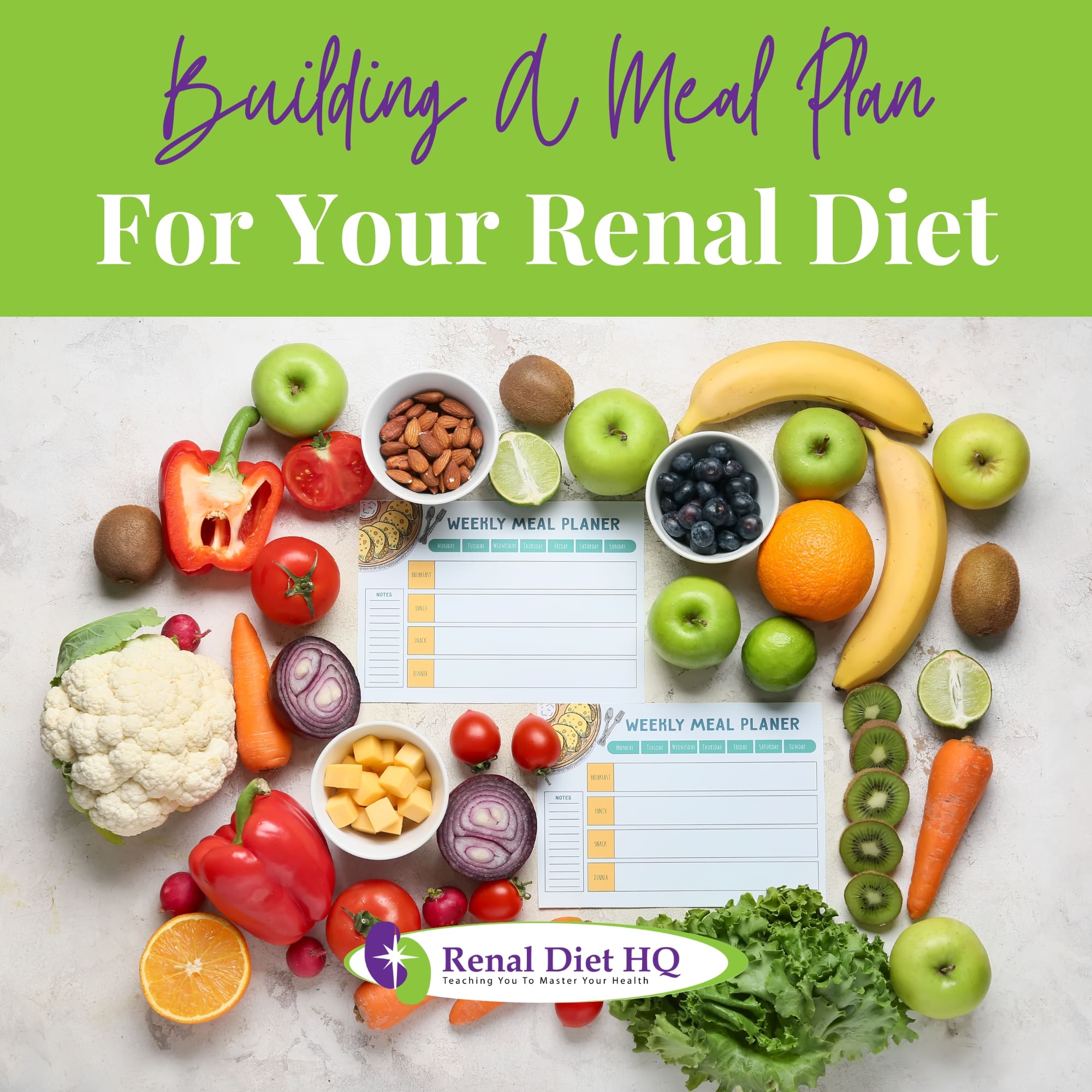
Building a Meal Plan for Your Renal Diet
Building a meal plan for a renal diet requires careful consideration to support kidney health and manage the condition effectively. Here are some essential tips to create a balanced and nutritious renal meal plan:
- Consult a dietitian: Seek guidance from a registered dietitian or a healthcare professional with expertise in renal nutrition. They can tailor a meal plan based on individual needs, considering factors such as kidney function, age, weight, and other health conditions.
- Control portion sizes: Moderation is key. Limiting portion sizes helps reduce the workload on the kidneys and prevents the accumulation of waste products in the bloodstream.
- Monitor protein intake: Restrict high-protein foods and opt for high-quality protein sources like lean meats, fish, poultry, eggs, and dairy. Plant-based proteins like tofu, legumes, and quinoa are also suitable alternatives.
- Manage phosphorus and potassium: Limit foods high in phosphorus, such as processed foods, nuts, and seeds. For potassium, choose lower potassium fruits and vegetables like apples, berries, and green beans while avoiding high potassium ones like bananas and potatoes.
- Control sodium: Minimize salt intake to help manage blood pressure and fluid balance. Avoid processed and canned foods, as they often contain high levels of sodium.
- Stay hydrated: Adequate fluid intake is essential for kidney function. However, the amount may need to be adjusted based on individual circumstances.
- Plan balanced meals: Ensure each meal consists of a variety of nutrients, including carbohydrates, fats, and fiber, to support overall health.
- Limit phosphorus additives: Processed foods may contain additives with phosphorus. Read food labels and choose phosphorus-free alternatives.
- Be cautious with calcium and vitamin D: These nutrients may require adjustments, depending on blood levels and kidney function.
- Monitor potassium binders: If prescribed by a doctor, take potassium binders as directed to help manage potassium levels.
Remember, individual needs may vary, so it's crucial to work closely with healthcare professionals to design a renal meal plan tailored to your specific requirements. Regular monitoring and adjustments may be necessary to ensure optimal kidney health.
The Role of Kidney-Friendly Recipes in Your Diet
Kidney-friendly recipes play a crucial role in a renal diet as they help individuals with kidney disease maintain a nutritious and enjoyable meal plan. These recipes are specifically designed to be low in sodium, phosphorus, and potassium while providing adequate, high-quality protein and essential nutrients.
By incorporating kidney-friendly recipes into their diet, individuals can better manage their condition, slow the progression of kidney disease, and improve overall health.
When looking for kidney-friendly recipes, there are several helpful sources available:
- Online recipe databases: Many websites and blogs offer collections of kidney-friendly recipes that cater to different tastes and dietary preferences.
- Renal diet cookbooks: Look for cookbooks specifically focused on renal nutrition. These books are created by experts in the field and provide a wealth of kidney-friendly recipes.
- Dietitian recommendations: Registered dietitians with expertise in renal nutrition can provide personalized recipe suggestions and meal plans based on individual needs.
- Kidney disease support groups: Online or local support groups often share recipes and tips among members, providing a community-based resource for kidney-friendly cooking ideas.
- Hospital or clinic resources: Some healthcare facilities offer educational materials and recipe guides for patients managing kidney disease (hospital renal diet menu).
When using kidney-friendly recipes, it's essential to follow the guidelines provided by healthcare professionals, as individual dietary needs can vary based on kidney function and other health factors. By incorporating tasty and suitable recipes, individuals can maintain a balanced and kidney-friendly diet that supports their overall well-being.
The Benefits of Grocery Shopping and Meal Prep in Advance
Getting a jump start on your grocery shopping and meal prep can truly revolutionize the way you manage your kidney-friendly diet. There are numerous benefits to this approach, including saving time and ensuring consistency with healthy eating strategies.
Grocery shopping in advance has its own perks. It allows you to carefully choose kidney-friendly ingredients, keeping in mind your dietary restrictions and preferences. You can avoid impulse buying of foods not suitable for your renal diet, promoting adherence to your food plan.
Meal prep advantages cannot be overstated either. Preparing meals ahead saves valuable time during weekdays when schedules tend to get hectic. Not only does it make cooking less stressful but also ensures you have nutritious meals ready at hand (meal prep for kidney disease patient).
Time-saving techniques such as batch-cooking or chopping vegetables beforehand can significantly cut down kitchen time on a daily basis. This helps keep you committed to your healthy eating plan without feeling overwhelmed.
Remember, meal planning is essential for effective dietary management of kidney disease. It involves strategizing what foods will best serve your health goals and organizing them into balanced meals. With some forethought and practice, these steps become second nature, making managing a renal diet more manageable.
Accounting for Everything You Eat and Drink
Keeping track of everything you consume can be a game-changer in managing your kidney health. It allows for more precise control over your renal diet, leading to better outcomes. This isn't just about noting down each meal; it's about understanding the impact of every bite and sip on your kidneys.
- Tracking progress: Recording what you eat gives you insight into patterns in your eating habits. This can help identify areas for improvement.
- Managing cravings: Noting down when cravings occur can help pinpoint their triggers, helping to manage them better.
- Hydration tips: Keeping tabs on fluid intake is crucial on a renal diet - it helps maintain balance without putting extra stress on your kidneys.
- Portion control: Documenting servings helps ensure that you're not going overboard with foods that may affect kidney health.
- Renal friendly snacks: Including these in your log will provide an at-a-glance reference for quick and safe snack options.
Remember, accountability is key to adhering to your prescribed renal diet. It's not just about restriction but also about making informed decisions that serve your health best. By keeping a detailed record of intake, you're one step closer to successfully managing kidney disease through dietary changes.
The Impact of Fluid Intake on Your Renal Diet
Fluid intake plays a significant role in a renal diet and has a direct impact on kidney health. For individuals with kidney disease, managing fluid intake is essential to maintain proper fluid balance and support kidney function. The kidneys' ability to filter and excrete waste products is impaired in renal disease, making it crucial to regulate fluid consumption to avoid overloading the kidneys.
Excessive fluid intake can lead to fluid retention and cause swelling, shortness of breath, and high blood pressure, putting additional strain on the kidneys. On the other hand, insufficient fluid intake may lead to dehydration, which can worsen kidney function and increase the risk of kidney stones and urinary tract infections.
Healthcare professionals may recommend individualized fluid restrictions based on the stage of kidney disease and other health factors. Monitoring daily urine output and body weight can help assess fluid balance and adherence to prescribed fluid limits.
To manage fluid intake effectively, individuals should be mindful of not only water but also fluids from other sources, such as soups, fruits, and vegetables. Limiting salty and high-sodium foods can also aid in reducing fluid retention.
Adhering to recommended fluid restrictions, staying hydrated within the prescribed limits, and regularly monitoring fluid balance can significantly impact kidney function, slow the progression of kidney disease, and enhance overall well-being in those with renal issues.
Embracing the New You with a Renal Diet
Now that you understand the importance of fluid intake in your renal diet (fluid restricted diet menu), it's time to fully embrace this new lifestyle. Adapting to a renal diet can be challenging, both physically and psychologically. It requires a significant shift in habits and mindset.
Understanding the Psychological Impact: Adjusting to dietary restrictions can be emotionally taxing. You may feel frustrated or overwhelmed at times, which is entirely normal. Acknowledge these feelings and seek professional help if needed.
Finding Support: Surround yourself with people who understand your situation - family, friends, or support groups for those with kidney disease. They will provide encouragement when things get tough.
Staying Motivated: Set small achievable goals and celebrate your progress along the way! This could include trying out a new kidney-friendly recipe or consistently maintaining your fluid intake within prescribed limits.
Navigating social situations while on a renal diet can seem daunting initially, but remember that it gets easier over time as you become more comfortable explaining your dietary needs to others and finding suitable food options wherever you go.
Embracing this new lifestyle with a renal diet means creating a support network, staying motivated, and understanding the psychological impact it brings. Doing so promotes health while enhancing life quality despite chronic kidney disease challenges.
Foods to Avoid and Food to Eat for Keeping Your Body Healthy with a Renal Diet
On a renal diet, certain foods should be avoided or limited to support kidney health, while others can be included to maintain proper nutrition and manage kidney disease effectively.
Foods to avoid:
- High-sodium foods: Processed and packaged foods, fast foods, and salty snacks can lead to fluid retention and elevated blood pressure, putting strain on the kidneys.
- High-phosphorus foods: Dairy products, nuts, seeds, and processed foods with phosphorus additives can contribute to imbalanced phosphorus levels, potentially leading to bone loss and heart disease.
- High-potassium foods: Bananas, oranges, tomatoes, potatoes, and other potassium-rich foods may be restricted, as impaired kidney function can hinder potassium excretion.
- High-protein foods: Reducing the intake of excessive protein, especially from red meat, can help lessen the kidneys' workload and minimize waste product buildup.
Foods to eat:
- High-quality protein: Lean meat, fish, poultry, eggs, and plant-based sources like tofu and legumes provide essential amino acids without overloading the kidneys.
- Low-phosphorus foods: Rice, pasta, cabbage, green beans, and apples are lower in phosphorus, helping maintain a balanced diet without straining the kidneys.
- Low-potassium fresh fruits and vegetables: Berries, pineapples, peppers, and onions are lower in potassium and can be incorporated into the diet.
- Low-sodium options: Fresh herbs, spices, and sodium-free seasonings can enhance flavor without adding sodium.
Consulting a registered dietitian or health care provider is crucial for personalized guidance, as dietary needs may vary based on individual health conditions and the stage of kidney disease. Following a well-balanced renal diet can promote kidney health, manage symptoms, and improve overall quality of life.
FAQs for My Doctor Prescribed A Renal Diet
Common side effects of not following a renal diet in individuals with kidney disease may include fluid retention, high blood pressure, electrolyte imbalances, increased phosphorus and potassium levels, bone and heart complications, and make kidney disease worse.
Not adhering to the prescribed renal diet may lead to a higher risk of developing kidney stones, fatigue, anemia, and malnutrition. Following the renal diet is essential to manage kidney disease effectively, slow its progression (ckd progression), and maintain overall health and well-being.
A renal diet differs from a regular diet primarily in its restrictions to support kidney health in individuals with kidney disease. The renal diet typically limits high-sodium, high-phosphorus, and high-potassium foods to reduce strain on the kidneys and manage electrolyte imbalances. It also moderates protein intake to prevent excessive waste production (why low protein diet in kidney disease)?
In contrast, a regular diet has no specific restrictions and is generally suitable for individuals with healthy kidney function. The renal diet aims to slow the progression of kidney disease, prevent complications, and promote overall well-being, making it essential for those with impaired kidney function.
Managing cravings for foods not allowed in a renal diet can be challenging but crucial for maintaining kidney health. To address these cravings, try finding kidney-friendly alternatives that satisfy similar tastes. Engage in distractions like hobbies or activities to take your mind off the cravings.
Practice portion control, allowing yourself occasional small indulgences. Staying properly hydrated can also help curb cravings. Seek support from a dietitian or join support groups for motivation and encouragement.
Always remember that adhering to the renal diet is vital for your kidney's well-being and long-term health. Focus on the overall improvement of your health and well-being to stay committed to the dietary restrictions.
In a renal diet, individuals can find alternatives to high-potassium foods to manage potassium levels effectively. Opt for low-potassium fruits such as apples, berries, and grapes instead of high-potassium ones like bananas and oranges. Choose vegetables like green beans, cucumbers, and zucchini over high-potassium options like potatoes and tomatoes (low potassium diet).
Replace high-potassium dairy products with low-potassium alternatives like almond milk or rice milk. Additionally, limit potassium-containing salt substitutes and opt for herbs and spices to enhance flavors. These alternatives help maintain a well-balanced renal diet while keeping potassium intake in check to support kidney health.
Yes, you can eat out while following a renal diet, but it requires some precautions. Choose restaurants with customizable options to tailor your meal. Be cautious of hidden sodium in sauces, dressings, and processed foods (processed foods and CKD). Request meals to be prepared with minimal salt, and ask for sauces and toppings on the side.
Opt for grilled, steamed, or baked dishes instead of fried ones. Avoid high-potassium ingredients like tomatoes, potatoes, and certain nuts. Always communicate your dietary needs to the restaurant staff, and don't hesitate to inquire about the ingredients and cooking methods to ensure a kidney-friendly meal.
Just Like Your Medications, A Renal Diet Prescription Is Something That You Should Follow
Following a prescribed renal diet is essential for managing kidney disease effectively and improving overall health. It involves carefully monitoring nutrient intake, fluid balance, and portion sizes to support kidney function.
Working closely with medical professionals, including doctors and dietitians, is crucial in tailoring a personalized meal plan which is also part of your treatment plan. Embracing kidney-friendly recipes, advanced grocery shopping, and meal prep can make adhering to the diet more manageable and enjoyable (Comprehensive Healthy Renal Diet Grocery List Guide). Monitoring everything you eat and drink helps maintain accountability and ensures adherence to the dietary restrictions.
By following the renal diet diligently, individuals can enhance their quality of life, slow the progression of kidney disease, and take an active role in their health and well-being.





